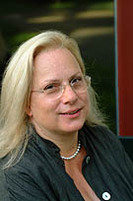MEDFORD, Mass. — The following is an interview with Ina Baghdiantz McCabe, Tufts Professor of History and Darakjian and Jafarian Chair in Armenian History, regarding her studies of diasporas and her insight on the formation of identities. It appeared in the newsletter of The Fletcher School’s Fares Center for Eastern Mediterranean Studies.
Katrina Stanislaw: Your childhood was uniquely international: raised in eight countries and educated in six languages before the age of 18. How did this exposure influence your passion for history?
Ina Baghdiantz McCabe: Living in many cultures makes you realize that
most people are the same despite their cultural differences. Pain and suffering are universal, as is the hope people hold for happiness and a better future. Revolutions have happened on the force of this promise for happiness and equality, but they always fail because some people never believe it should be allowed. To put it simplistically, people believe they are better than “other” people. The idea that some people are better than others, taken to its extreme logic, is what led to the Holocaust.
Of all the places I have lived I feel most at home here in the United States; it remains the best democratic experiment, despite some scary episodes. Unfortunately, that experiment also has a very painful beginning with the annihilation of many native groups. As a historian it helps you avoid the trap of exceptionalism; you realize that many problems are universal.








